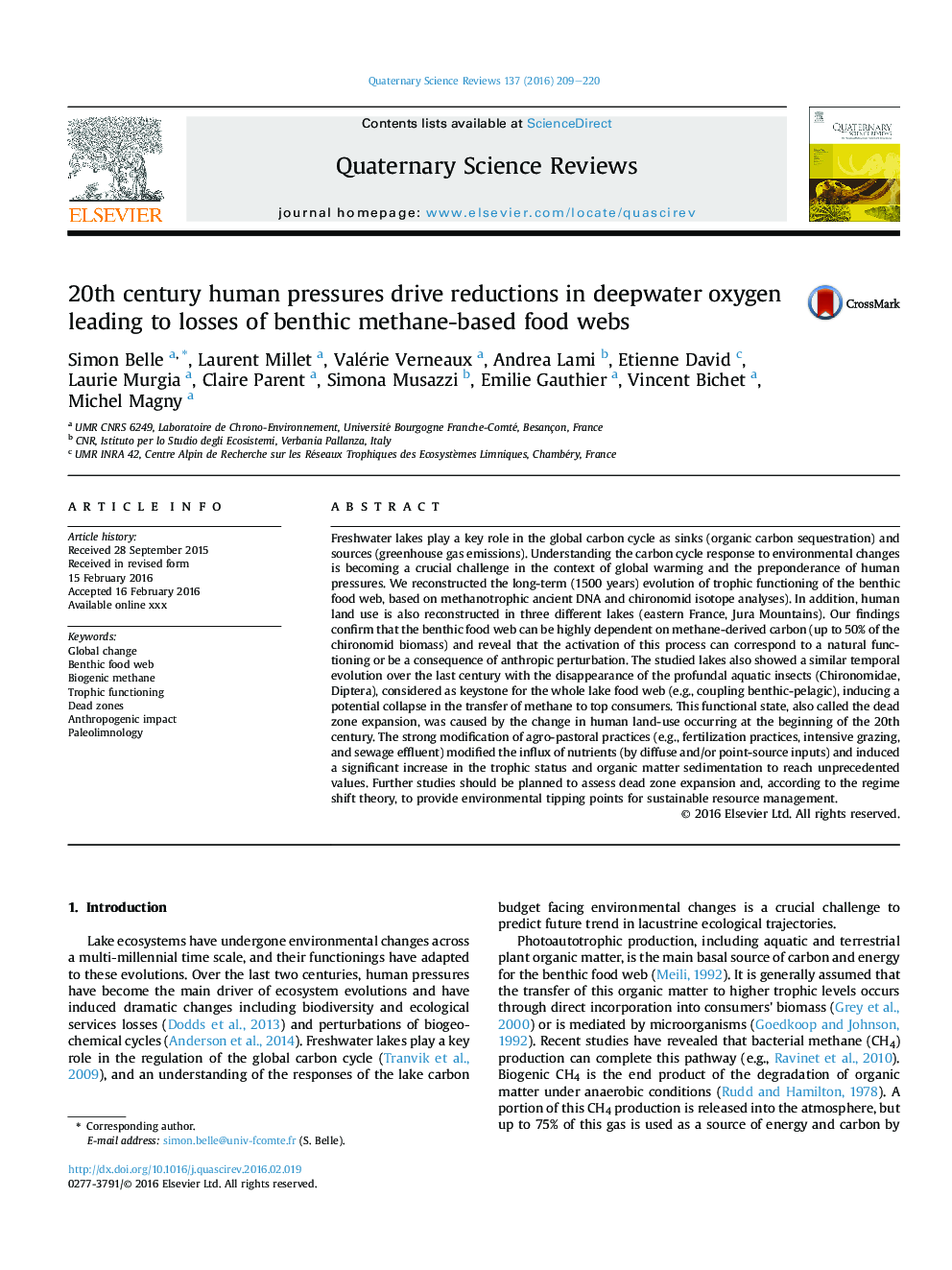| کد مقاله | کد نشریه | سال انتشار | مقاله انگلیسی | نسخه تمام متن |
|---|---|---|---|---|
| 6446521 | 1640798 | 2016 | 12 صفحه PDF | دانلود رایگان |
عنوان انگلیسی مقاله ISI
20th century human pressures drive reductions in deepwater oxygen leading to losses of benthic methane-based food webs
ترجمه فارسی عنوان
فشارهای انسانی در قرن بیستم موجب کاهش اکسیژن عمیق در آب می شود که سبب از بین رفتن مواد غذایی متان بر اساس بنتون می شود
دانلود مقاله + سفارش ترجمه
دانلود مقاله ISI انگلیسی
رایگان برای ایرانیان
کلمات کلیدی
موضوعات مرتبط
مهندسی و علوم پایه
علوم زمین و سیارات
زمین شناسی
چکیده انگلیسی
Freshwater lakes play a key role in the global carbon cycle as sinks (organic carbon sequestration) and sources (greenhouse gas emissions). Understanding the carbon cycle response to environmental changes is becoming a crucial challenge in the context of global warming and the preponderance of human pressures. We reconstructed the long-term (1500 years) evolution of trophic functioning of the benthic food web, based on methanotrophic ancient DNA and chironomid isotope analyses). In addition, human land use is also reconstructed in three different lakes (eastern France, Jura Mountains). Our findings confirm that the benthic food web can be highly dependent on methane-derived carbon (up to 50% of the chironomid biomass) and reveal that the activation of this process can correspond to a natural functioning or be a consequence of anthropic perturbation. The studied lakes also showed a similar temporal evolution over the last century with the disappearance of the profundal aquatic insects (Chironomidae, Diptera), considered as keystone for the whole lake food web (e.g., coupling benthic-pelagic), inducing a potential collapse in the transfer of methane to top consumers. This functional state, also called the dead zone expansion, was caused by the change in human land-use occurring at the beginning of the 20th century. The strong modification of agro-pastoral practices (e.g., fertilization practices, intensive grazing, and sewage effluent) modified the influx of nutrients (by diffuse and/or point-source inputs) and induced a significant increase in the trophic status and organic matter sedimentation to reach unprecedented values. Further studies should be planned to assess dead zone expansion and, according to the regime shift theory, to provide environmental tipping points for sustainable resource management.
ناشر
Database: Elsevier - ScienceDirect (ساینس دایرکت)
Journal: Quaternary Science Reviews - Volume 137, 1 April 2016, Pages 209-220
Journal: Quaternary Science Reviews - Volume 137, 1 April 2016, Pages 209-220
نویسندگان
Simon Belle, Laurent Millet, Valérie Verneaux, Andrea Lami, Etienne David, Laurie Murgia, Claire Parent, Simona Musazzi, Emilie Gauthier, Vincent Bichet, Michel Magny,
